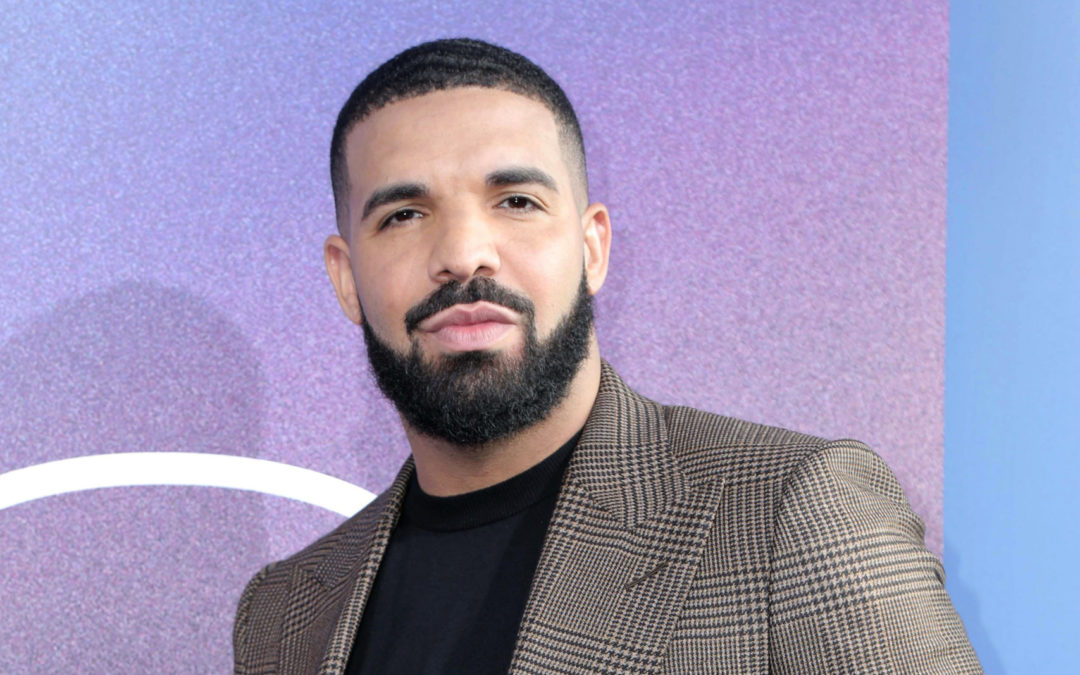
by Derrick T Lewis | Oct 30, 2023 | Latest, Music News, New Music Alert |
A tale of music, fame, and resilience, this is the story of the Grammy-nominated rapper Offset, the man behind one-third of the hip-hop sensation, Migos. His journey is not just about the glitz and glamour, but also about overcoming challenges and struggles, some of which happened behind bars.
The Rise of Migos
A decade ago, in the vibrant city of Atlanta, a group called Migos started their ascent to the top of the hip-hop industry. Their music, characterized by strong rhythms and catchy hooks, quickly gained traction, leading to a rapidly growing fanbase. Their breakout hit, “Versace“, catapulted them into the limelight. However, for Offset, one of the group members, the reality of their success was not immediately apparent. Why? He was in jail during their breakout year.
The Unseen Success
During a recent appearance on the Call Her Daddy podcast, Offset opened up about his time in jail and how he realized Migos’ success. His “we made it” moment was not a grand celebration or a record-breaking concert. Instead, it was a realization that dawned on him in a jail cell. He recalled how things really took off after Drake featured on the remix of “Versace”, their 2013 hit produced by Zaytoven, which was part of their project, Y.R.N. (Young Rich N***as).
A Song Echoes in the Jail Cell
Offset’s revelation about their success came in an unusual yet unforgettable manner. He was in his jail cell one day when he heard a guard humming a familiar tune during the morning count – “Versace, Versace, Versace”. Offset didn’t think much of it at the time. After all, he was not aware of how big Migos had become in the outside world.
The Big Reveal
Offset’s initial reaction was one of confusion and disbelief. He wasn’t aware of the extent of their success because he was incarcerated. His mind was in turmoil, grappling with the harsh realities of prison life. But when the guard started singing their song, he was taken aback.
Once he was released, he immediately called home. That’s when he found out about Drake’s feature on “Versace”. His friends also informed him that their song was being played on the radio. To Offset, this was mind-boggling. He had initially thought that their song might have been played once or twice on the radio, but the reality was far from it.
The Taste of Fame Behind Bars
Offset had to stay in jail for a few more months even after this revelation. However, he started experiencing the perks of fame behind bars. He began receiving more visits, something that was not common before. He could have up to six visits a day, each lasting about 30 minutes. At first, he mostly received visits from his mother. However, after “Versace” became a hit, he started receiving more visits, even from women who were previously not so keen on visiting him.
Reflecting on the Early Success of Migos
In a 2021 appearance on VladTV, Offset reflected on his early days with Migos. He admitted that it was hard to be in jail while his fellow members, Quavo and Takeoff, were enjoying their success in the outside world. However, he was grateful that they were saving some money for him. After all, they had never had real money before.
This is the story of Offset, a man who experienced the highs and lows of life in a unique way. His journey from jail to the forefront of the hip-hop world is a testament to his resilience. It’s a reminder that success can come in the most unexpected ways, even when you’re not in a position to immediately enjoy it.

by Jonathan P-Wright | Oct 26, 2023 | Latest, Music News |
Photo by israel palacio on Unsplash
The landscape of hip-hop has evolved significantly in recent years, with the emergence of new artists and the rise of streaming platforms. However, according to rapper Bow Wow, there is a concerning trend of record labels putting out “subpar ass artists” who lack the necessary skills and knowledge to navigate the industry successfully. In this article, we will explore the importance of artist development in the music industry and why it is crucial for record labels to invest more time and resources in nurturing talent.
The Current State of Hip-Hop
Bow Wow, also known as Bow Weezy, recently expressed his frustration on social media regarding the lack of artist development in the music industry. He believes that record labels are too quick to sign and promote artists who may not be ready for the challenges of the industry. In his tweet, he highlighted the importance of bringing back artist development programs at these labels to ensure that artists receive the necessary training and guidance.
The Role of Record Labels
Record labels play a significant role in shaping the careers of artists. They have the resources and expertise to provide artists with the necessary tools and opportunities to succeed in the highly competitive music industry. However, in recent years, there has been a shift towards signing artists based on their viral success or social media following, rather than their artistic abilities or potential for growth.
The Need for Artist Development
Artist development programs are designed to help artists refine their skills, develop their unique sound, and navigate the complexities of the music industry. These programs provide artists with the knowledge and tools they need to succeed, both creatively and professionally. By investing in artist development, record labels can ensure that the artists they sign are prepared for the challenges they will face and have the potential to create lasting, impactful music.
The landscape of hip-hop has evolved significantly in recent years, with the emergence of new artists and the rise of streaming platforms. However, according to rapper Bow Wow, there is a concerning trend of record labels putting out “subpar ass artists” who lack the necessary skills and knowledge to navigate the industry successfully. In this article, we will explore the importance of artist development in the music industry and why it is crucial for record labels to invest more time and resources in nurturing talent.
The Current State of Hip-Hop
Bow Wow, also known as Bow Weezy, recently expressed his frustration on social media regarding the lack of artist development in the music industry. He believes that record labels are too quick to sign and promote artists who may not be ready for the challenges of the industry. In his tweet, he highlighted the importance of bringing back artist development programs at these labels to ensure that artists receive the necessary training and guidance.
The Role of Record Labels
Record labels play a significant role in shaping the careers of artists. They have the resources and expertise to provide artists with the necessary tools and opportunities to succeed in the highly competitive music industry. However, in recent years, there has been a shift towards signing artists based on their viral success or social media following, rather than their artistic abilities or potential for growth.
The Need for Artist Development
Artist development programs are designed to help artists refine their skills, develop their unique sound, and navigate the complexities of the music industry. These programs provide artists with the knowledge and tools they need to succeed, both creatively and professionally. By investing in artist development, record labels can ensure that the artists they sign are prepared for the challenges they will face and have the potential to create lasting, impactful music.
There have been numerous success stories in the music industry that highlight the importance of artist development. Artists like Symba, Westside Boogie, Lady London, and Lola are just a few examples of talented artists who have benefited from proper artist development. These artists have honed their craft, developed their own unique styles, and gained recognition for their talent.
The Future of Hip-Hop
Bow Wow’s call for record labels to prioritize artist development reflects a growing sentiment within the industry. There is a need for change and a return to nurturing talent, rather than focusing solely on short-term gains. As the music industry continues to evolve, it is essential for record labels to invest in the future of hip-hop by supporting and developing emerging artists.
Conclusion
Artist development plays a vital role in the success and longevity of artists in the music industry. By providing artists with the necessary training, guidance, and resources, record labels can ensure that they are nurturing talent and creating opportunities for artists to thrive. The future of hip-hop depends on a return to artist development, where artists can grow, evolve, and create music that resonates with audiences for years to come.

by Laghe Andrews | Oct 23, 2023 | Latest, Music News |
Image credit: YES Market Media / Shutterstock.com
The world of music, especially the hip-hop genre, is no stranger to rivalries. Yet, the long-standing feud between top rappers Gucci Mane and T.I. has always been a topic of interest for fans and critics alike. Their recent reconciliation on stage in Atlanta was a defining moment, marking the end of their icy relationship and the beginning of a newfound camaraderie.
The Grand Event That Turned Heads
To commemorate the launch of his star-packed project, Breath of Fresh Air, Gucci Mane orchestrated a grand concert in Atlanta. The event was graced by an array of prominent artists including Quavo, Latto, and Key Glock among others.
But the highlight of the show was an unexpected moment when Gucci brought out T.I., a figure with whom he had a long-standing feud. A video shared by Gucci captured the two erstwhile adversaries shaking hands, symbolizing the possible end of their long-standing rivalry.
“Much respect @tip,” Gucci captioned the video clip.
A Brief rendezvous with their Past
The feud between Gucci and T.I. dates back to 2012, triggered by disagreements surrounding T.I.’s relationship with Jeezy. The contention between them re-emerged in 2018 when both claimed to be the pioneers of trap music.
T.I., in response to the claim, posted on social media,
“Ok, so…. AGAIN for the slow ones in the back… August 19th,2003 Birth of Trap Muzik & Only fools dispute facts!!!”
He further added a sarcastic comment, mocking Gucci’s claim.
“OH wit that Christopher Columbus ass… ‘Look what I discovered, even though they were already here ass shit!!!!’ WITCHO GOOD CAPPIN ASS.”
The Hope for Resolution
In 2020, T.I. and Jeezy expressed their desire to resolve their differences with Gucci Mane. T.I. voiced that it would be the “best-case scenario” for the trap music genre.
It’s worth noting that Gucci and T.I. kickstarted their careers around the early 2000s and played a pivotal role in shaping Atlanta’s trap scene. This perhaps explains their urge to claim ownership over its origins.
The Mount Rushmore of Trap
T.I. recently reiterated his wish to move past the feud with Gucci when he listed the four rappers he believes should be on the Mount Rushmore of Trap. He named himself, Jeezy, and Gucci as the “three figureheads” of trap.
“That was always like unanimous, and nobody could even question or you can’t add or remove anybody from that,” T.I. stated.
Looking Ahead
As they move forward, both rappers have exciting projects in the pipeline. T.I. has announced his “final” full-length album — a double album named Kill the King / Kiss the King. Meanwhile, Gucci’s Breath of Fresh Air has already generated a buzz among fans.
It’s clear that the reconciliation of Gucci Mane and T.I. isn’t just a victory for them as individuals, but for the entire trap music community. This act of shaking hands on stage is a testament to their growth as artists and their commitment to the genre they’ve helped shape. As the saying goes, music indeed has the power to heal and bring people together

by Fabiola Noel | Oct 23, 2023 | Latest, Music News |
Photo by Samuel Ramos on Unsplash
When Salt-N-Pepa sat down with Will Smith for a chat on his podcast, Class of ‘88, a candid conversation about their boycott of the 1989 Grammys unfolded. This article delves into the duo’s reflections on their bold stance and its undeniable impact on their career and the music industry.
The Birth of Hip-Hop: A Golden Anniversary
In the podcast, Smith was curious about Salt-N-Pepa’s views on the evolution of hip-hop, which has recently celebrated its 50th year. He asked the duo if they could have ever predicted the genre’s meteoric rise in popularity.
Will Smith: “Could you ever have imagined hip-hop becoming what it is today?”
A Journey in a Male-Dominated Field
This prompted Salt-N-Pepa to recall their journey in the music industry, a field largely dominated by men. They reminisced about their decision to join the 1989 Grammys boycott, a bold move that was rare for women in the industry during that era.
The Grammys Boycott: A Risk Worth Taking
Pepa confessed to Smith that at the time of the boycott, they hadn’t won any awards despite their contribution to the music scene. The decision to boycott the Grammys brought with it a substantial risk.
Pepa: “As women, we didn’t win any awards at that time at all. And as a male-dominated field and taking a chance, we didn’t even know if the Grammys is going to say, ‘You know what? You went against us. You never gon’ be seen.’ But they listened.”
Salt, on the other hand, elaborated on the boycott’s significance for them and for the industry. She believed that their stand likely influenced the Grammys to televise their win in 1995.
Salt: “We had no idea that it would actually make an impact for change.”
Class of ’88: An Insightful Trip Down Memory Lane
On October 26, all eight episodes of Class of ’88, featuring conversations with various music icons, will be available on Amazon Music and Audible. Other guests on the podcast include Queen Latifah, Darryl “DMC” McDaniels, Rakim, Fab 5 Freddy, DJ Jazzy Jeff, Chuck D, J.J. Fad, and DJ Red Alert.
The conversation between Salt-N-Pepa and Will Smith provides a rare glimpse into the challenges faced by women in the music industry. Their decision to boycott the 1989 Grammys marked a significant moment in their career and helped pave the way for future female artists.
As we continue to celebrate the 50th anniversary of hip-hop, it’s essential to honor the pioneers like Salt-N-Pepa who helped shape this genre and fought for equality in the industry. Despite the challenges they faced, their story serves as an inspiration for aspiring musicians worldwide.

by Monet, Who Else | Oct 18, 2023 | Latest, Music News, New Music Alert |
Joe Budden, a well-known rapper-turned-podcaster, recently shared his thoughts on Drake’s highly anticipated album, ‘For All the Dogs’, on Episode 664 of The Joe Budden Podcast. The conversation sparked a lot of discussion, with fans eagerly awaiting Budden’s critique of the album. While Budden has a complicated history with Drake, he has always maintained that he is a big fan of Drake’s music throughout his career.
In the podcast episode, Budden and his co-hosts delved into their thoughts on ‘For All the Dogs’, offering both positive and negative feedback. One of the standout moments from the podcast was when Budden called out Drake’s performance on the track “First Person Shooter” featuring J. Cole. This clip quickly went viral, catching Drake’s attention and reigniting their past issues. Drake responded by writing a lengthy Instagram caption aimed at Budden, criticizing his music career and questioning his credibility.
Budden’s Mixed Review of ‘For All the Dogs’
Despite the heated exchange between Drake and Budden, it’s important to note that Budden’s critique of the album was not entirely negative. Throughout the podcast episode, he shared his honest opinions on various aspects of the album, highlighting both its strengths and weaknesses. Let’s take a closer look at Budden’s thoughts on different tracks and elements of ‘For All the Dogs’:
“8am in Charlotte” – A Disappointment for Budden
Budden admitted to being a fan of Drake’s past entries in the time stamp series, but he found “8am in Charlotte” to be underwhelming. He expressed his disappointment, stating that the track didn’t live up to the rest of the series. While he acknowledged that Drake was “rapping well” on the song, he felt that it didn’t fit the mood or temperament he expects from the time stamp series.
Budden believed that “Virginia Beach” should have been a diss track directed at Pusha T, one of Drake’s long-standing rivals. He praised the beat of the song but questioned why Drake didn’t go all out in dissing Pusha T. Despite his disappointment in the missed opportunity, he still appreciated what Drake was talking about on the track.
Shots at Rihanna – Confusion and Criticism
Budden expressed confusion over Drake’s decision to seemingly take shots at Rihanna in the song “Fear of Heights”. He questioned why Drake would go after her and ASAP Rocky, the father of her children. He viewed it as petty and unnecessary, particularly since Rihanna hadn’t released an album in seven years. However, he did acknowledge the beat switch in the second half of the song as “insane.”
“First Person Shooter” with J. Cole – Budden’s Overall Issue with Drake
Budden pointed out that the song “First Person Shooter” with J. Cole exemplified his overall issue with Drake. He criticized Drake’s decision to let Cole’s voice be the first voice heard on the track, suggesting that it showed Drake trying to align himself with Cole when they aren’t actually close. Budden felt that Drake failed to rise to the occasion in comparison to Cole’s performance on the song.
Drake Rapping in Spanish – A Missed Mark for Budden
Budden made it clear that he never wants to hear Drake rap in Spanish again, particularly referencing the track “Gently” featuring Bad Bunny. He felt that Drake’s execution of rapping in Spanish was subpar and compared it to when Drake started singing “Happy Birthday,” suggesting that it was a low point in his career. He also described the second half of the album as “a mess.”
‘For All the Dogs’ as Drake’s Best Since ‘Scorpion’
Despite his criticisms, Budden acknowledged that ‘For All the Dogs’ is Drake’s best album since ‘Scorpion’, released in 2018. While his co-hosts argued that this may not be saying much, Budden expressed his disappointment with the current state of hip-hop albums in general. He believes that many rappers sound uninspired and lack the creative energy to innovate. He suggested that Drake could do with some time off to recharge and potentially bring fresh ideas to the table.
Missing Verses and Dominant Hooks
Budden questioned the absence of the verse that Lil Yachty praised on ‘For All the Dogs’. He couldn’t find the verse that Yachty claimed was one of Drake’s best, raising doubts about its inclusion on the album. He also expressed his disappointment in the lack of memorable hooks from Drake in recent times, as he believes Drake’s strength lies in his ability to create catchy and dominant hooks.
Drake Rapping for the Children
Towards the end of the podcast episode, Budden suggested that Drake’s album sounded like he was “rapping for the children” rather than his longtime fans. He felt that Drake should focus on creating music that resonates with adult audiences and tackles more mature topics. Budden compared Drake’s growth to that of J. Cole, stating that he wants to hear Drake rap for adult people.
A Break for Drake
Budden expressed his happiness that Drake is taking a break from music, referring to Drake’s recent announcement that he will be stepping away from the studio to focus on his health. Budden and his co-hosts even suggested that Drake could benefit from taking a year or two off between albums. They emphasized that Drake has already accomplished so much in his career, and it shouldn’t be solely on him to set the standard for the music industry moving forward.
In conclusion, Budden’s critique of ‘For All the Dogs’ was mixed. While he had several criticisms and disappointments with the album, he still considers himself a fan of Drake. He acknowledged the album as Drake’s best since ‘Scorpion’ but questioned whether that’s saying much given the current state of rap albums. Budden hopes to see Drake take some time off and return with a refreshed perspective and innovative ideas.
In the end, it’s clear that Joe Budden’s critique of Drake’s ‘For All the Dogs’ album is multifaceted. He presents both positive and negative feedback, highlighting specific tracks and elements that left an impression on him. While his comments may have sparked controversy, it’s important to recognize that Budden’s opinions come from a place of deep knowledge and experience in the music industry.








RECENT COMMENTS